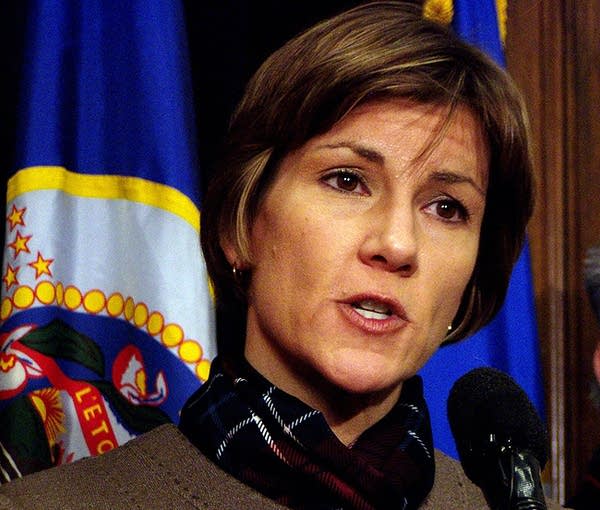Lenders under scrutiny for faulty foreclosure documents
Go Deeper.
Create an account or log in to save stories.
Like this?
Thanks for liking this story! We have added it to a list of your favorite stories.
State Attorney General Lori Swanson is investigating whether Minnesota is among the states where lenders have used faulty documents to foreclose on homeowners.
Minnesota has joined at least six other states looking into the foreclosure procedures of major national lenders, including Ally and JPMorgan Chase.
A few years ago, St. Cloud homeowner Tami Gewecke and her husband were in financial trouble and facing foreclosure.
After their application for a loan modification was denied, they eventually received a foreclosure notice. They also declared bankruptcy. And that is when they unwittingly stumbled upon a problem that's getting attention on Capitol Hill.
Turn Up Your Support
MPR News helps you turn down the noise and build shared understanding. Turn up your support for this public resource and keep trusted journalism accessible to all.

Gewecke says it was a shock to see that their loan had changed hands.
"We thought Argent and Countrywide were servicing us but then US Bank is foreclosing on us and it's like, why is US Bank foreclosing on us? - we have never made them a payment a day, ever," Gewecke said.
Turns out, their lender, Argent, had transferred ownership to a Citigroup trust. And US Bank was a trustee for Citigroup Mortgage Loan Trust.
Ultimately, the Gewecke's loan was cut up and sold along with other mortgages to investors around the world. But attorney Mark Ireland says the documents used to show ownership of the Gewecke's loan don't hold up.
"Something happened here where if you were to just glance at the paperwork it would all appear to be in order," he said. "But in fact it's not in order because potentially the people signing these affidavits didn't actually do what they say they did."
Two of the lenders named in the Gewecke's lawsuit declined to comment, citing the litigation.
Ireland says the Gewecke case is similar to what is now coming to light in other states across the country.
Bank of America, which took over Countrywide's loans, released a statement saying it is assessing its existing processes "to be certain affidavits have followed the correct procedures."
U.S. Sen. Al Franken and others in Congress are asking the Government Accountability Office to investigate some of the biggest lenders for possible "misconduct." And Minnesota Attorney General Lori Swanson is investigating allegations that mortgage lenders and servicers took shortcuts to speed foreclosures.
"It's really the underlying sloppiness and bad practices that is troubling," Swanson said.
Unlike other states where foreclosures are processed through the courts, Minnesota does foreclosure by advertisement. Still, Swanson says lenders have to prove they own the loan in order to foreclose.
"If in other parts of the country through the so-called robo-signing or outright fraud, lenders are cutting corners and not substantiating their right to foreclose, the concern would be: is the same type of activity occurring in Minnesota?" Swanson said.
Swanson is investigating JP Morgan Chase, Bank of America, GMAC and other lenders she declined to name. She said she will take legal action if she finds evidence that lenders foreclosed on Minnesota homeowners without adequate documentation.
University of Minnesota law professor Prentiss Cox said he isn't surprised this problem is coming up in Minnesota.
"There have absolutely been repeated instances shown where the same sorts of problems occurred in the document assignment that occurred in those sales of mortgages," Cox said.
Real estate research firm RealtyTrac last week reported that banks are expected to take over more than 1 million homes this year.
Ally, JPMorgan and Bank of America have temporarily halted foreclosures in 23 other states after court documents showed their employees might have submitted affidavits without confirming their accuracy.
State officials have said this could amount to fraud.
The Geweckes' foreclosure is also on hold while their lawsuit over whether their loan's documentation is accurate works its way through the courts.
If the judge decides against them, and whichever bank legally owns her loan resumes the foreclosure, Tami Gewecke said she'll accept that -- as long as that bank does it properly.
"If it's not okay for me to forge things and stretch the truth on the applications, then on the other end, when it comes to needing to go through this process, then do me the same courtesy and follow the rules and be legal and do it the right way," she said.
Gewecke said she hopes her case sheds light on a larger problem with the foreclosure process.



